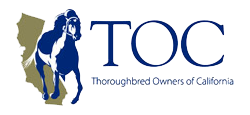By Trainer Howard Zucker
One of the least understood factors in the cost of owning a racehorse is your vet bill. Vet expenses are an unwelcome but necessary part of maintaining your racehorse in peak condition.
Hopefully, your horse was raised with few veterinary costs other than routine wormings and vaccinations. Perhaps you had to pay for antibiotics to treat an illness or field injury. If there were no problems during early training at the farm or training center, you paid for routine x-rays to check on knee closure and bone maturity, and if all went well, your steed went off to the track.
Then what happened? All of a sudden you see a seemingly endless list of charges, mostly for unfamiliar medications adding up to a vet bill which averages $100, $200, or upwards of $600 per month. What’s going on? Is your horse hurt, dying, or has he become drug dependent from job-related stress? Ask your trainer!
Good communication between owner and trainer, resulting in a thorough explanation of the vet’s bill, can keep a healthy business relationship alive and well. A smart trainer informs owners of veterinary work being done on a regular basis, either week-by-week or whenever progress reports are regularly given. Such updates avoid the shock at month’s end when the bill arrives. It is also a good idea for trainers to personally check and approve all items on a vet’s bill before it is sent to the owner. Such practice eliminates one potential trouble of charges mistakenly applied to your bill. It is also useful for the trainer to add a brief note of explanation for exceptionally large charges as to the procedure employed, why it was necessary, and what medication was used.
Some trainers, myself included, use preventative therapies such as electromagnetic therapy, massage, chiropractic adjustments, ultrasound, and ice. Such therapeutic remedies may also work to reduce your monthly vet statement, and keep your horse at its athletic peak.
Is It Better to Administer Medication Orally or Via Injection?
There are basically two ways of administering medication to horses, either orally or by injection. On California racetracks, only a licensed veterinarian can legally give an injection, so any injection will require a veterinary fee. “Injectables” may be given subcutaneously, intramuscularly, or intra-articularly (directly into a joint).
There are a number of ways to administer drugs and medications orally. It may be done by drench (dissolving the medication and squirting it into the horse’s mouth with a syringe), or by paste (many common wormers and anti-inflammatories are sold in this form). Some can simply be added to the feed, either as powder or pulverized pills. Oral administration can be done by your trainer, and is thus usually cheaper than injections.
For example, 25 oral doses of Bute cost about the same as one injection. Why then would you want to use an injectable, if the same medication is available orally?
An injection is preferable – sometimes necessary – when a horse needs immediate relief from severe pain. Medication is given in an injectable form before a race to ensure that the horse receives the full dose, and does not leave a part of the dose uneaten in its feed tub. Additionally, some trainers prefer injections because they eliminate the risk of the wrong horse receiving a medication mistakenly placed in its feed tub.
Of course, as in every other aspect of racehorse training, opinions vary. Different trainers and different veterinarians use different approaches to using an injectable vs. and oral dose. Many owners trust their trainers to make these decisions. If an owner is interested in or concerned about how his or her horse is being “vetted,” have a conversation with your trainer and/or veterinarian.
With regards to your overall vet costs, don’t be afraid to discuss them with your trainer and/or veterinarian. Good communication makes good business, and will enhance your ownership experience.
Howard Zucker has been a licensed trainer for 19 years, during which time he has developed 1993 California Bred Juvenile Champion, Moscow Changes. He has a B.A. from City College of New York, majoring in Finance with a minor in Biology.
